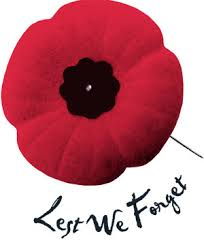
This week on the memorable occasion of the Centenary of the end of World War I. We hear a lot about how this war has now passed out of living memory and the fantastic efforts to pass on the lessons learned to the next generations and so I’ve shamelessly re-posted my thoughts from 2013 about how books help embed those lessons bringing the stories down to human experience.
Armistice Day (which overlaps with Remembrance Day and Veterans Day) is celebrated every year on 11 November to commemorate the armistice signed between the Allies of World War I and Germany at Compiègne, France, for the cessation of hostilities on the Western Front of World War I, which took effect at eleven o’clock in the morning—the “eleventh hour of the eleventh day of the eleventh month” of 1918.
If I’m completely honest I despite being taught about both World Wars at school I think that reading books has helped me put what I had learnt into context. I find books that tell the stories of what it was like during wartime captivating and this interest started early on in life.
My knowledge of the First World War pretty much began with the set texts of war poetry we learnt as part of our O’ Level English Literature course and the haunting words that were sent down the decades from young men, many not significantly older than I was at the time, have stayed with me over the years.
Anthem for Doomed Youth by Wilfred Owen
What passing-bells for these who die as cattle?
— Only the monstrous anger of the guns.
Only the stuttering rifles’ rapid rattle
Can patter out their hasty orisons.
No mockeries now for them; no prayers nor bells;
Nor any voice of mourning save the choirs,—
The shrill, demented choirs of wailing shells;
And bugles calling for them from sad shires.What candles may be held to speed them all?
Not in the hands of boys, but in their eyes
Shall shine the holy glimmers of goodbyes.
The pallor of girls’ brows shall be their pall;
Their flowers the tenderness of patient minds,
And each slow dusk a drawing-down of blinds.
Without the endless dissection of those poems by my excellent teacher I don’t think I would have had anything like the understanding that I gained during those months. Siegfried Sassoon, Wilfred Owen and Rupert Brooke all bought to life exactly how great every soldier’s sacrifice was.
The Soldier by Rupert Brooke
If I should die, think only this of me;
That there’s some corner of a foreign field
That is for ever England.
There shall be
In that rich earth a richer dust concealed;
A dust whom England bore, shaped, made aware,
Gave, once, her flowers to love, her ways to roam,
A body of England’s, breathing English air,
Washed by the rivers, blest by suns of home.
And think, this heart, all evil shed away,
A pulse in the eternal mind, no less
Gives somewhere back the thoughts by England given;
Her sights and sounds; dreams happy as her day;
And laughter, learnt of friends; and gentleness,
In hearts at peace, under an English heaven.
But before that the effects of war had been through fiction, heavily based upon fact, to give a feeling what war meant for the wider population. Children like books that have links to their own lives but given the right texts that doesn’t mean that they have to be modern stories, there are some great books about children in war-time, here are a few of my favourites.
When Hitler Stole Pink Rabbit by the wonderful Judith Kerr was an early favorite. My father is Jewish and I was fascinated by this heritage even as quite a small child, although it was only on the death of my Grandfather that I realised that our surname had been anglicised on the birth of my Uncle in 1938.
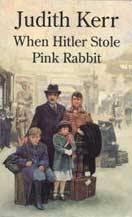
Partly autobiographical, this is first of the internationally acclaimed trilogy by Judith Kerr telling the unforgettable story of a Jewish family fleeing from Germany at the start of the Second World War
Suppose your country began to change. Suppose that without your noticing, it became dangerous for some people to live in Germany any longer. Suppose you found, to your complete surprise, that your own father was one of those people.
That is what happened to Anna in 1933. She was nine years old when it began, too busy with her schoolwork and toboganning to take much notice of political posters, but out of them glared the face of Adolf Hitler, the man who would soon change the whole of Europe – starting with her own small life.
Anna suddenly found things moving too fast for her to understand. One day, her father was unaccountably missing. Then she herself and her brother Max were being rushed by their mother, in alarming secrecy, away from everything they knew – home and schoolmates and well-loved toys – right out of Germany… Amazon
Link to ">Amazon UK
Another childhood favorite was Carrie’s War by Nina Bawden, another of my favorite authors for children.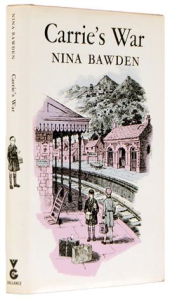
‘I did a dreadful thing…or I feel that I did, and nothing can change it…’
It is the Second World War and Carrie and Nick are evacuated from London to a small town in Wales, where they are placed with strict Mr Evans and his timid mouse of a sister.
Their friend Albert is luckier, living in Druid’s Bottom with Hepzibah Green who tells wonderful stories, and the strange Mister Johnny, who speaks a language all of his own. Carrie and Nick are happy to visit Albert there, until one day when Carrie does a terrible thing – the worst thing she ever did in her life…
Based on her own childhood, Nina Bawden’s enchanting story Carrie’s War has delighted readers for almost 40 years. Amazon
Link to ">Amazon UK
When I read this as a child I used to wonder how all those children coped being sent away from their parents. Now as a mother, I wonder how on earth those poor women managed to carry on with their children far away being looked after by people they didn’t know.
Although the lives for those fighting the war doesn’t even bear imagining the effect it had on everyone’s view of life changed forever. Those that were around for both World Wars must have seen more pain and hardship than any other generation.
At around ten I came across The Diary of A Young Girl by Anne Frank, written while Anne and her family were in hiding in Amsterdam.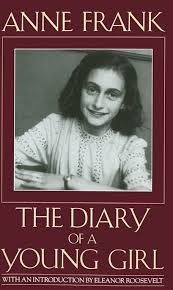
Anne Frank and her family fled the horrors of Nazi occupation by hiding in the back of a warehouse in Amsterdam for two years with another family and a German dentist. Aged thirteen when she went into the secret annexe, Anne kept a diary. She movingly revealed how the eight people living under these extraordinary conditions coped with hunger, the daily threat of discovery and death and being cut off from the outside world, as well as petty misunderstandings and the unbearable strain of living like prisoners. Amazon
Link to"> Amazon UK
I was moved by the everyday writing depicting the horror of a life lived in secret. Years later I visited Anne Franks house, by now aware that my family were Dutch Jews and saw both my paternal parents surnames repeated over and over in the book of names of those who died in concentration camps. I will never forget that moment when I realised that it was due to a decision made years before, that I was even alive.
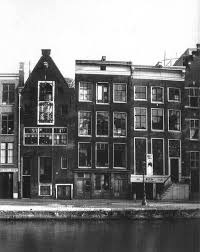
Anne Frank’s House Amsterdam
Books about the wars are still a staple of my adult reading and I’ve picked just a couple of those that I think stand out as exceptional examples of books that make you think and really appreciate the sacrifice that was made by all those young men.
My preference tends towards those books which look at society as a whole and . Andrew Cowen’s book Worthless Men published in 2013, is a particularly strong example. This book depicts life in an anonymous English market town in 1916, where many of the men were missing, fighting for King and Country.
Click on the book cover to read my review
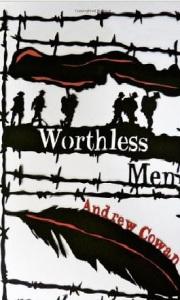
Link to ">Amazon UK
Wake by Anna Hope also looks at the period just following Armistice day in an exceptional novel that uses the progress of the journey for the internment of The Unknown Warrior at the Cenotaph. Each chapter is a day and each of those days follows the journey of the coffin from France to Britain for the ceremony. So moving and a brilliant illustration of a war and what it meant for those who fought and those who were left behind.

Remembrance Day 1920: A wartime secret connects three women’s lives: Hettie whose wounded brother won’t speak; Evelyn who still grieves for her lost lover; and Ada, who has never received an official letter about her son’s death, and is still waiting for him to come home. As the mystery that binds them begins to unravel, far away, in the fields of France, the Unknown Soldier embarks on his journey home. The mood of the nation is turning towards the future – but can these three women ever let go of the past?
To the Grave by Steve Robinson has a different way of looking at the lives left behind during World War II
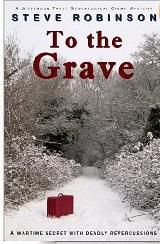
Our American Genealogist Jefferson Tayte aka JT has been employed by Eliza Gray who has received a suitcase with some effects telling her that she was in fact adopted. JT travels to Leicestershire to discover who the mysterious Mena Lasseter was. The story of Mena is based towards the end of the war in 1944/45 but the current day story has just as much, if not more to offer.
The characters are well drawn and Mena’s story is an emotional one but at the same time there is a lot of intrigue in the present day. JT finds himself in danger but who wants to cover up what happened all those years ago.
Link to ">Amazon UK
I just want to finish by saying that we shouldn’t forget the effects the two World Wars had not just on the soldiers who fought in them but a whole generation.
